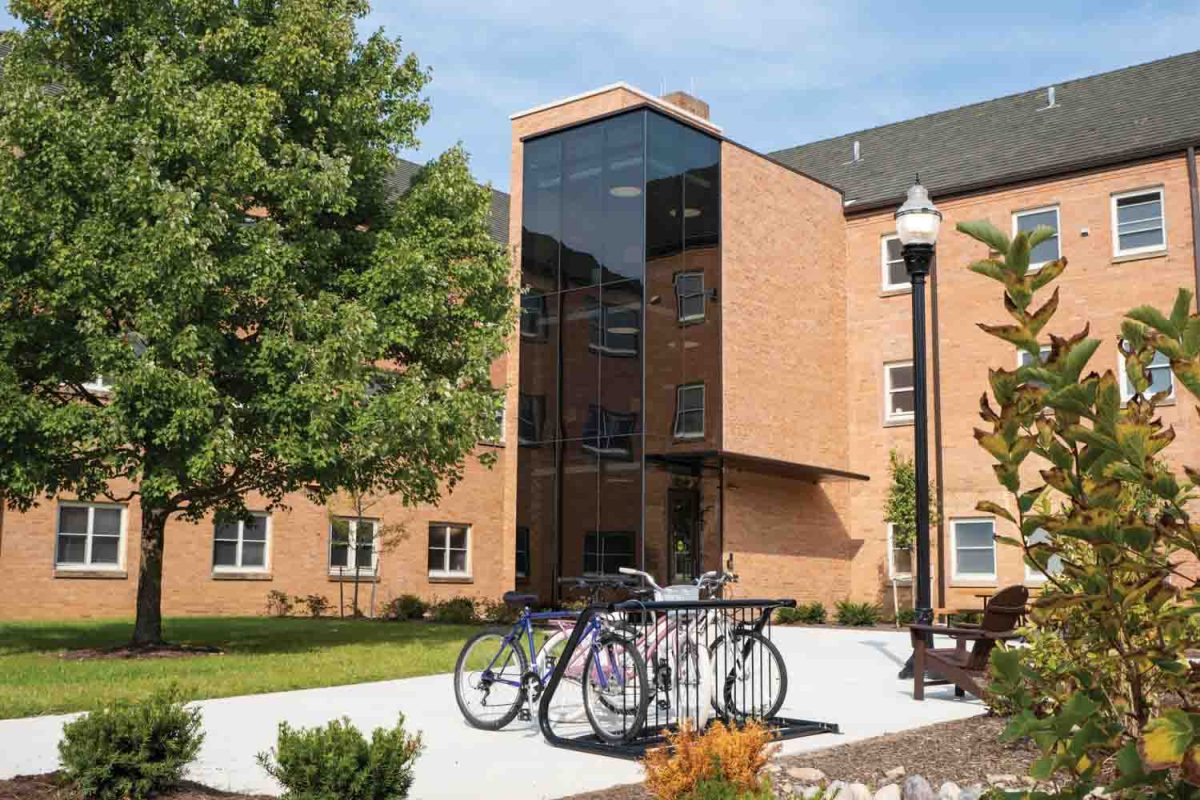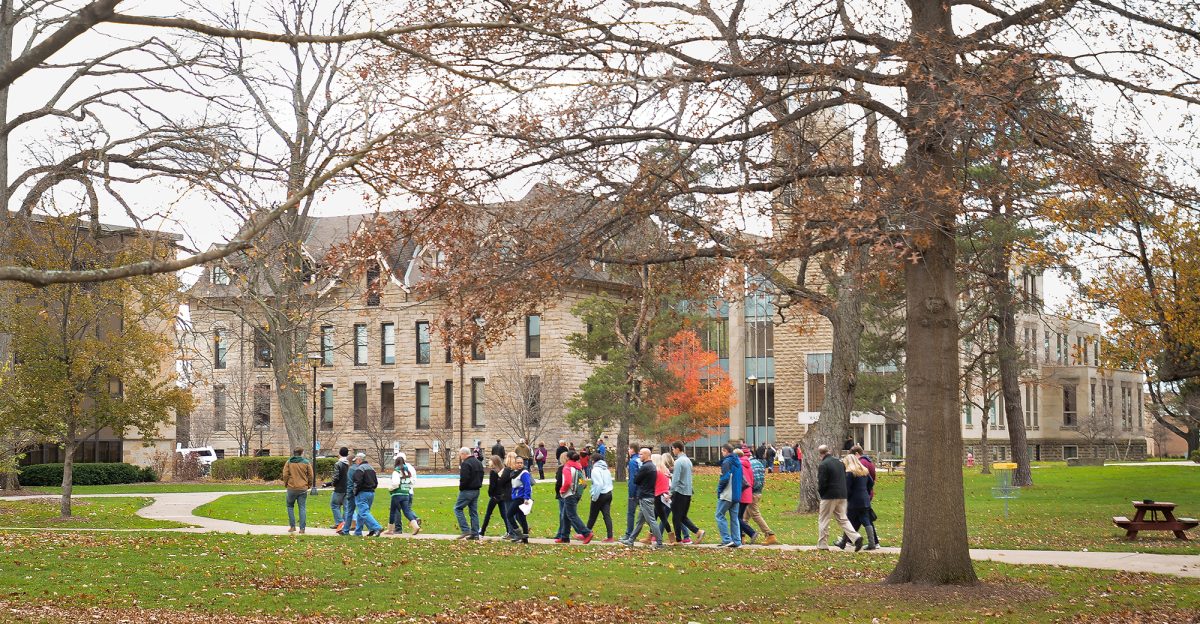Most first-year students are now required to live on campus for three years instead of two, but the decreased lack of freedom and feelings of miscommunication about the policy have left some students unhappy.
Kristin Brewer, assistant director of residence life and housing, said the new requirement is to help foster the community at BW5, while also helping students “transition to that next stage and phase of adulthood.”
First-year students have the option to live in Heritage and Constitution Halls, along with North Hall for STEM students, Carmel Hall for honors students or 21 Beech for Conservatory students.
Vincent Pleva, a first-year finance student, lives in Constitution East residence hall. While his parents only live five minutes away, he chose to live on campus because he is unable to drive due to epilepsy and wanted to be more engaged in the BW community.
“If you’re commuting, you’re not meeting as many people because you’re only talking to the people that are in your classes,” Pleva said. “Whereas on campus you get to talk to people in a variety of different majors.”
However, Pleva said he may choose to go back home or apply to become a Resident Assistant next year to help offset the cost of continuing to live at BW.
Some students have exemptions from the on-campus living requirement, including those who choose to live at home with their parents if they fall within a 30-mile radius of BW.
Isabella Borges, a first-year AYA education and English student, said that as a commuter she feels more disconnected as she does not have the opportunity to meet as many people during the semester. However, due to the added expense of living on-campus, she said she prefers to live at home with her parents.
Despite the policy change, not all first-year students were aware of the new requirement. Mia Strizak, a first-year accounting student, said she only learned about the requirement from an upperclassman, but does not remember being directly told about the policy.
“Personally, I would prefer a two year [requirement], with living off-campus because I think it’s a big step in life,” Strizak said. “But I think having to wait until you’re a senior to do so almost seems pointless.”
Statements about the new three-year living requirement can be found on the Housing page on BW’s website, bw.edu, as well as on the Residence Hall and Apartment Contract for Housing.
Emma Trost, a junior psychology student, has lived on campus for three years. Trost said her original plan was to move off campus because she was tired of the tight spaces and not being fully independent but had to be on-campus due to circumstances outside of her control.
“I thought two years was good because if you enjoy it, then you’ll stay for another year, but if you don’t enjoy it, you can look at other options,” Trost said.
Brewer said that the new policy added a year because there are a lot of benefits including additional support to general living needs such as cleaning and cooking to help students focus more on their studies.
“The idea is that each year you’re working towards more of that independent living and softening part of that transition to be off-campus, eventually,” Brewer said.
Brewer said that they intentionally place most first-year students in double rooms with a communal bathroom to help reduce conflicts of living in a shared space, as well as having professional staff close-by in their satellite office. Resident Assistants in first-year areas also engage in special social programming to help residents meet each other.
While students may not live off campus or outside of their parent’s permanent residence during the three-year period, students are able to live in university apartments or suite style dorms starting in their second year.
If you have any questions regarding living on-campus or the three-year requirement, contact Residence Life and Housing by email reslife@ bw.edu.






























